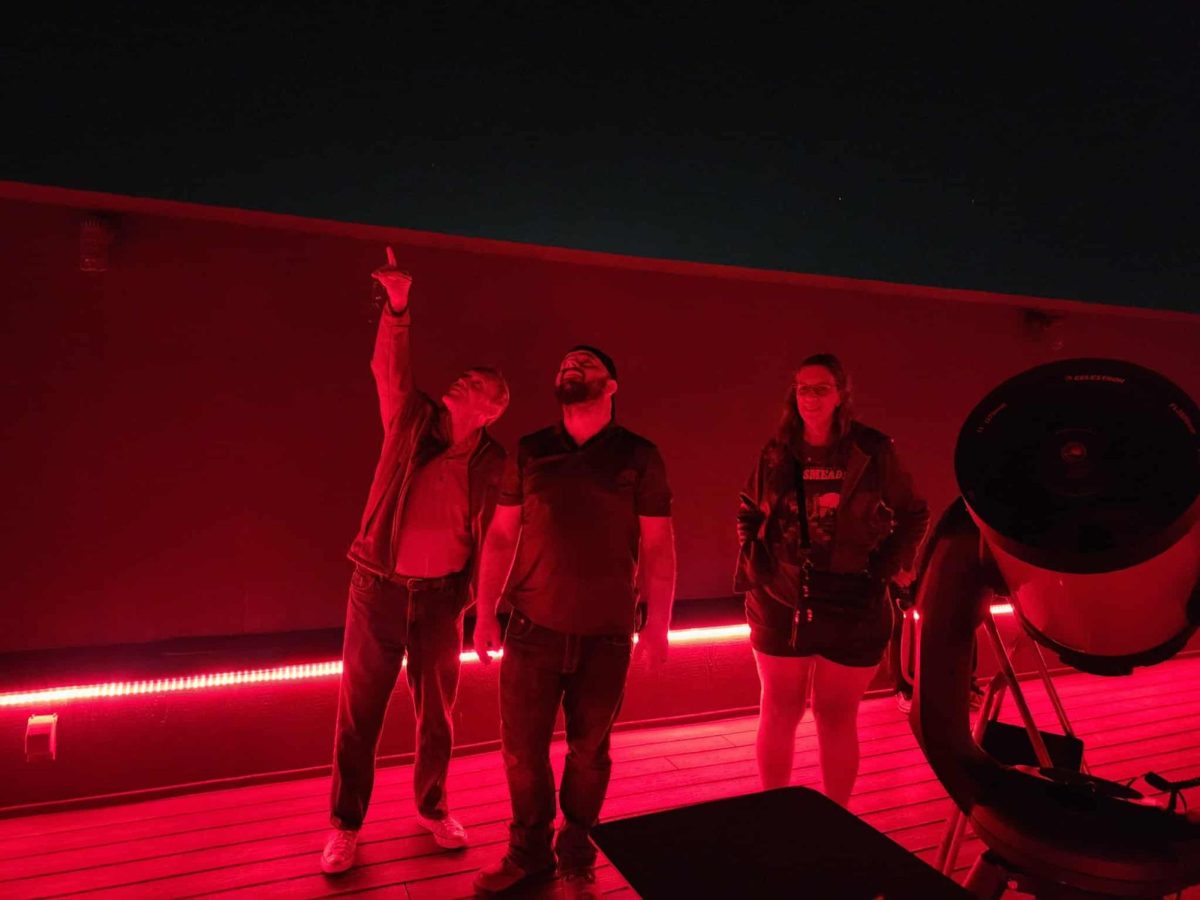On Thursday, November 21, Dr. Tewei Wang from the College of Business at the University of Illinois Springfield (UIS) and Dr. Chih Chen Lee, a professor at the College of Business at Northern Illinois University (NIU), departed with 19 students from UIS and NIU for a 10-day study-away program in Shanghai.
Titled “Innovation China”, this program aimed to provide students with valuable insights into Chinese culture and economy, fostering connections between American and Chinese communities in both economic and cultural spheres while promoting global understanding.
The Innovation China program equips participants with the skills needed to explore business opportunities in China and collaborate with Chinese partners. By studying China’s business environment, culture, society, and political, institutional, regulatory, and legal systems, students gain a holistic understanding of the country’s dynamic landscape.
For the first five days, the group stayed at Shanghai Dianji University (SDJU), where they attended classes and lectures on the Chinese language, history, and economy. The students were warmly welcomed by SDJU faculty and students. During the opening ceremony, attendees were treated to traditional Chinese music and performances, creating a memorable cultural introduction.
Founded in 1953, SDJU is a public university renowned for its focus on advanced manufacturing and modern service industries. While engineering is its primary discipline, the university also offers programs in economics, management, literature, art, and science. It is recognized as one of China’s first nationwide CDIO (Conceive, Design, Implement, Operate) pilot universities and a model institution for innovation and entrepreneurship in Shanghai.
SDJU operates two campuses: Lin-gang and Min-hang. The group visited the Lin-gang campus, which includes notable sites such as the Shanghai Planetarium (the largest planetarium in the world), the Duo Yun Bookstore, and the newly developed Dishui Lake.
The itinerary also included visits to the ancient water town of Wuzhen and Hangzhou, known as the hub of e-commerce in China. Students had time to explore downtown Shanghai and iconic landmarks like the Oriental Pearl Tower and Yu Garden.
Additionally, the group visited the Hongqiao Import Commodity Exhibition and Trade Center (Hongqiao Pinhui), where they learned about China’s growing trend of live-stream shopping. Students had the opportunity to delve into the mechanics of creating successful livestream campaigns.
The water town of Wuzhen
The program concluded with a closing ceremony on Monday, December 2, before the group returned home.
Shanghai Skyline
As a participant in the Innovation China program, I had the privilege of experiencing Shanghai, a city that left me both amazed and inspired. One of the first things I noticed was how incredibly crowded the city was, yet everything seemed to function seamlessly.
The level of organization was remarkable, with public transportation that was always on time, making it incredibly easy to navigate such a vast metropolis. From buses to trains, every vehicle was electric, contributing to an environment that was refreshingly smog-free. This made walking around the city not only enjoyable but also surprisingly serene for a place with such a high population density.
Shanghai’s modernity and technological advancement were equally impressive. The city revolves around two main apps—WeChat and Alipay—which serve as comprehensive platforms for nearly every aspect of daily life. These apps are used for everything from paying bills and rent, to shopping and accessing public transportation.
Witnessing such a streamlined integration of technology into everyday life was eye-opening. It made me reflect on how leveraging technology to this extent could significantly enhance efficiency and improve quality of life in other parts of the world.
Another standout aspect of my experience was the warmth and hospitality of the Chinese students, professors, and locals. From the moment we arrived at Shanghai Dianji University, we were welcomed with open arms.
The Chinese students went out of their way to make us feel at home, sharing their culture, traditions, and personal stories. Professors and university staff created a supportive and engaging environment, and even locals we met in the city were kind and helpful. This sense of connection and generosity truly made the experience special.
Beyond the cultural immersion, I gained a deeper understanding of Chinese history, food, economy, and technology. Each class, site visit, and interaction offered valuable insights into the country’s rich traditions and innovative spirit. I was particularly fascinated by how China has become a global leader in technology and sustainability. Observing their advancements in areas such as electric transportation and the widespread use of digital tools made me think critically about how other nations could adopt similar practices.
Living this experience not only broadened my perspective but also deepened my appreciation for how culture and innovation can go hand in hand. It was incredible to see how technology, when used thoughtfully and in abundance, can enhance both individual lifestyles and the overall functionality of a society. This realization, coupled with the unforgettable memories I made with new friends from both the U.S. and China, has made this journey one of the most impactful experiences of my life.
I returned from Shanghai with new academic and professional skills, cherished memories, and a profound appreciation for the interconnectedness of our global community. This program has left an indelible mark on my heart and mind, and I will carry its lessons with me for years to come.









